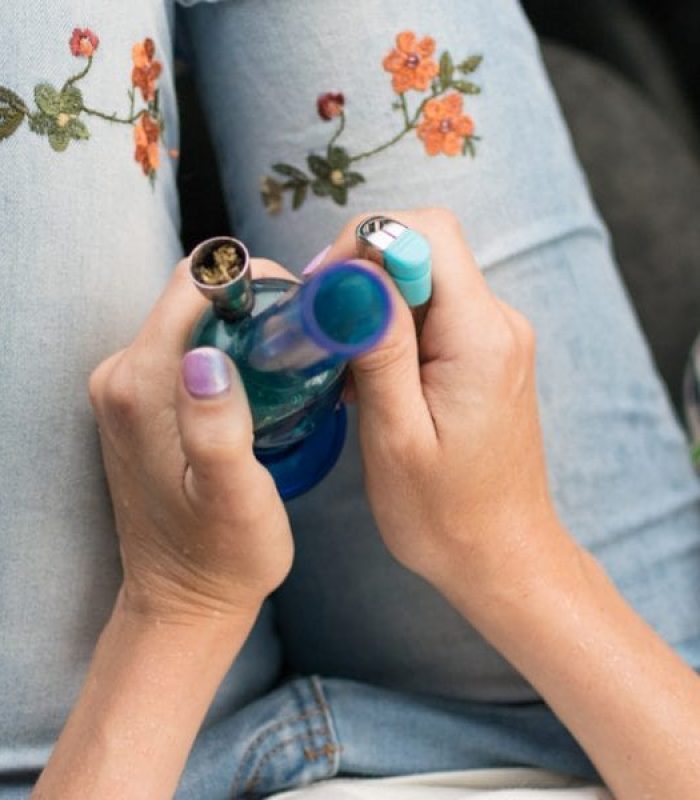There are so many studies on cannabis and sleep, surprisingly few are able to answer the question: do I need a strain high in THC or CBD for a good night’s sleep?
We all know cannabis can knock us out for the count. Many patients – whether they call themselves that or not – rely on cannabis to help them sleep. But which component of cannabis brings on the sleep? Is it THC, CBD that’s best for sleep, or a combination of the two, or, do we not give full credit to the entourage effect?

Before we dive in, let’s clear the air here: the scientific consensus agrees that cannabis affects sleep. This is not debatable. What is debatable is how cannabis affects our sleeping patterns, and which compounds in the plant are responsible for those effects. We know that cannabis withdrawal can be detrimental to sleep, but there’s ample evidence that cannabis use can disrupt healthy sleep patterns as well.
A 2013 study in Sleep Medicine Reviews looked at nearly 40 studies on cannabis and sleep up to that point. The study’s authors realized there were gross disparities between previous study methods and controls – such as dosage and other drug use – a common problem with any literature review for cannabis.
The Study Continued
The Sleep Medicine study concluded that cannabis likely helped people sleep because most cannabis patients suffer chronic pain. Chronic pain can diminish the quality of sleep, especially since many chronic pain conditions get worse at night. If cannabis can alleviate or alter the perception of pain, then that alone will help someone stay asleep. However, as it goes with these sorts of studies, the review only assessed whether cannabis itself assisted with sleep, not which parts of cannabis were responsible. Again, we’re left with the THC vs CBD conundrum.
Fast forward to 2014 – Drug and Alcohol Dependence published a study that looked at patients with PTSD and how they used cannabis for sleep. PTSD can wreak havoc on sleep patterns due to recurrent nightmares along with perpetual paranoia and hypervigilance. Again, cannabis helped these individuals “cope” with their PTSD symptoms, which in turn helped them get better sleep. However, there was still no assessment of whether THC or CBD or a combination of the two did this.
In the natural sciences, we try to rely on data that’s less than ten years old. We prefer newer data because our technologies and methodologies are always improving over time, so the information is considered more reliable than older stuff. Unfortunately, some of the best studies on THC and CBD regarding sleep were conducted in the early- and mid-2000s, but they give some incredibly helpful clues.
One of the Most Comprehensive Studies on Sleep
One of the most comprehensive studies regarding cannabis and sleep was published in FEBS Letters in 2006. This study specifically looked at CBD in rats, and employed microdialysis and histological slides to understand how CBD altered brain chemistry. If you want the nitty gritty details, click here. Otherwise, read on.
CBD, according to the 2006 study, increases wakefulness in the presence of light. Although this study only looks at CBD in rats, human studies (which the paper cites) show this same effect. CBD also reduces REM sleep – the deepest stage of sleep that’s responsible for dreaming – which may explain why cannabis users often report a lack of dream experiences.
THC, however, most definitely induces sleep. It is, after all, classified as a sedative-hypnotic (not a hallucinogen, as some idiotic prohibitionists will claim). The initial studies confirming this were performed in the 1970s, way beyond our ideal 10-year rule, but the data from these old studies used synthetic or isolated THC, so there were no confounding CBD interactions.
THC and CBD together
If we want something more timely, we’ve got this 2004 study from the Journal of Clinical Psychopharmacology. This one’s fun because it assessed THC and CBD together in varying amounts (from 5 mg to 15 mg) and found that CBD appears to increase wakefulness while THC causes sleepiness. In fact, when combining equal amounts of THC with CBD, CBD “counteracted the residual sedative activity” of THC. In other words, CBD is powerful enough to cancel out the sleep-inducing effects of THC.
So, what’s the verdict? TLDR; THC helps us sleep, and CBD helps us stay awake.
This may confuse some of you who have smoked high-CBD buds and fell asleep right after. Or for those of you who consume CBD oil because it helps with nap time. What’s the deal?

The deal is likely the entourage effect. Keep in mind the studies that administered THC and/or CBD to subjects used pure THC and/or CBD. We’re talking research-grade solutions here. Many CBD products such as oils, tinctures, edibles, or flowers contain other cannabinoids and terpenes. What’s probably happening is a mixture of CBD with these other compounds causes sleepiness.
If you don’t believe me, try dabbing CBD crystals or “diamonds,” the purest form of CBD available in most legal markets. From what I’ve heard, you’ll feel pleasantly wired, as if you just awoke from a power nap.



